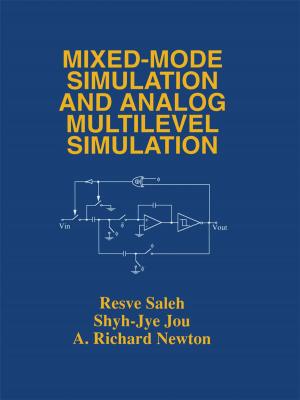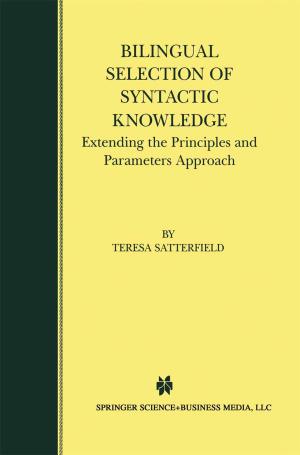Applied Hypnosis and Hyperempiria
Nonfiction, Health & Well Being, Psychology, Clinical Psychology, Psychotherapy, Medical| Author: | D. Gibbons | ISBN: | 9781468435818 |
| Publisher: | Springer US | Publication: | December 6, 2012 |
| Imprint: | Springer | Language: | English |
| Author: | D. Gibbons |
| ISBN: | 9781468435818 |
| Publisher: | Springer US |
| Publication: | December 6, 2012 |
| Imprint: | Springer |
| Language: | English |
Professionals who are well-trained in hypnotherapeutic procedures are able to utilize a variety of suggestions-suggestions for age regres sion, cessation of smoking, weight control, relaxation, reduction of pain, etc. In fact, the art of "hypnosis" can be conceptualized as the art of administering suggestions in an effective and useful way. In the teaching of hypnosuggestive methods, the need has long been appa rent for a manual that could provide examples of suggestions that would be serviceable in applied settings. Now we are fortunate to have this text by Don E. Gibbons, which offers many different kinds of suggestions that can serve as models for both the novice and the experienced practitioner. Students who are training in this area can use the text to learn how to formulate their own suggestions in profes sional settings. Experienced hypnotherapists will also find the text helpful in expanding their repertoire. In addition to presenting useful models of suggestions, Dr. Gib bons's text also meets the need for a clearly written manual that explains hypnosis in accordance with the results of modem research. During the past 25 years, more research has been conducted on hyp nosis than in all the preceding years since Mesmer. These investiga tions have led to a view of hypnosis which differs markedly from the traditional view of the passive subject who is hypnotized by and is subservient to the dominant hypnotist.
Professionals who are well-trained in hypnotherapeutic procedures are able to utilize a variety of suggestions-suggestions for age regres sion, cessation of smoking, weight control, relaxation, reduction of pain, etc. In fact, the art of "hypnosis" can be conceptualized as the art of administering suggestions in an effective and useful way. In the teaching of hypnosuggestive methods, the need has long been appa rent for a manual that could provide examples of suggestions that would be serviceable in applied settings. Now we are fortunate to have this text by Don E. Gibbons, which offers many different kinds of suggestions that can serve as models for both the novice and the experienced practitioner. Students who are training in this area can use the text to learn how to formulate their own suggestions in profes sional settings. Experienced hypnotherapists will also find the text helpful in expanding their repertoire. In addition to presenting useful models of suggestions, Dr. Gib bons's text also meets the need for a clearly written manual that explains hypnosis in accordance with the results of modem research. During the past 25 years, more research has been conducted on hyp nosis than in all the preceding years since Mesmer. These investiga tions have led to a view of hypnosis which differs markedly from the traditional view of the passive subject who is hypnotized by and is subservient to the dominant hypnotist.















